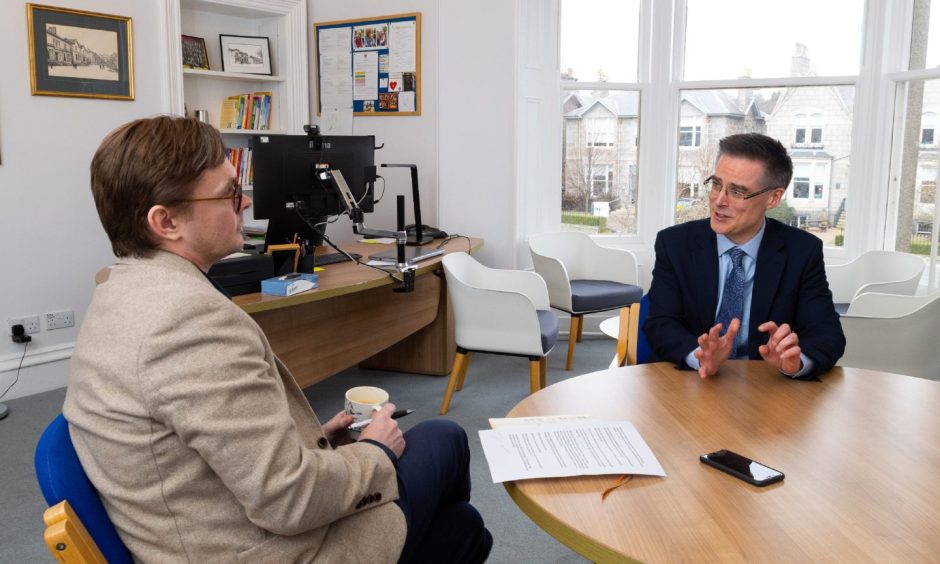
The new head teacher at Albyn School says it has “a very bright future” despite VAT changes threatening to take a chunk out of its school roll.
Following the General Election last year, the UK government announced that private school fees would be charged VAT at the standard 20% rate from January 1, 2025.
David Starbuck, who became Head of School at Albyn just a few days later, was critical of the move, which he branded a “tax on children”.
Despite this, Mr Starbuck said there were plenty of reasons for optimism at the Aberdeen school, in a wide-ranging interview with The P&J.
Founded in 1867 as an all-girls school, Albyn School became co-educational in 2005 and now has a 50-50 split of girls and boys.
Mr Starbuck has been at the school since 2013, most recently as acting head, before taking the reigns as Head of School in the new year.
Albyn School has a reputation for academic excellence, with outstanding exam results year after year.
It is also the site of Scotland’s only French School, catering for the children of employees at the various French companies in Aberdeen such as Altrad, Total and Technip, and others among Scotland’s 15,000 French speakers.
We sat down with Mr Starbuck (“Ironically, despite my name I don’t drink coffee”) for an exclusive interview. He told us about:
- His vision for the school
- Current and future “headwinds” in education
- The charitable element of Albyn School
- Why he believes introducing VAT on private school fees won’t have the impact on state education that the government thinks it will
- Mobile phones in schools
- “Spinning plates” in a school with pupils aged two to 18
- The “mix of emotions” at seeing pupils leave
How have you settled in since the New Year? You were obviously already at the school, but Head of School is a very different role I would imagine.
“One of the interesting things for me is that I’ve been the acting head of the school twice.
“During the Covid year, 2020 to 2021, I took over as acting head because the then headmaster had contracted Covid and was in hospital.
“And so I spent a year running the school under very difficult and unusual circumstances.
“Nevertheless, there was a school to be run and I did that job then.
“Then more recently I took over as acting head for a period of time as well [after predecessor Stefan Horsman quit].
“So I feel that settling in is an interesting thing to talk about because although I’ve clearly got a new role as the head of school, I’ve also got plenty experience of being here and being in the lead role.
“But it’s been really good, it’s been really heartening. A lot of people have got in touch to congratulate me and to say how pleased they are, including former pupils.
“I think because I’ve been here since 2013, some people are just really pleased to see me in charge of the school.
“So it’s going well, I’ve got a good relationship with the parent association, former pupils, and the staff as well.
“But there are a lot of things for us to be getting on with, because there are headwinds out there for us as a sector at the moment.”
Given that you’re not new to Albyn School, what advantages does that continuity give the school?
“Well, I really know the school. I know how it operates, I know the pupils, the parents, the staff.
“I know what everyone’s strengths are and what their priorities are, and what they want to do.
“So yeah, I feel like I can hit the ground running and start to develop the school and take it along its next steps.
“I’ve got a clear vision for the school as being a leading community of lifelong learners and an enduring force for good.
“Those two principal points are behind everything I’m going to do for the school as it moves forward.”
What are your first impressions of the role, is it what you expected? What has surprised you?
“No surprises, I knew what I was coming in to.
“I suppose the thing for us is we’ve got the issue around VAT on fees, the local economic conditions as well, and that playing a part in how the school operates going forward is a big thing for us to deal with.”
Just before I get onto the VAT issue, how are things at Albyn School at the moment? What are the positives?
“Albyn is genuinely such a lovely community of people. You probably picked up on that when you came in and saw all those kids getting on with all those different activities and everything.
“The parents really appreciate everything we do in the school. We did a survey of parents quite recently and they really praised both the academic and the pastoral life of the school.
“There’s a real sense of action with what we do.
“And I think the way in which we create a really happy and safe, but vibrant, community for everybody, I think that’s a really big part of what makes Albyn such a wonderful, wonderful community.
“It’s very genuine. Even as Head of School I know who the kids are.
“We’re just small enough to be able to have that connection with people, but still big enough to have all the different things that are going on across the school, all the wonderful events and opportunities for pupils.
“The school’s in a really good place.”
The 20% VAT on private schools was introduced on January 1. What are your thoughts on that? What impact will that have on Albyn School and how do you mitigate that?
“The impact is a little unknown at this point because it was introduced midway through the school year.
“We have two different concerns.
“One is those pupils who are already here and whose families will no longer be able to afford it.
“And the other is those who will now never come to Albyn, or any independent school, because of the VAT change.
“It’s a challenge for us as a sector. We’ve been talking with heads across Scotland about what that looks like.
“The thing I would really make a clear point about is that we are in no way in favour of that [the introduction of VAT on private school fees].
“It’s not simply an economic argument.
“We’re a charity. Independent schools are charities.
“A lot of people can be forgiven for thinking, ‘well, you’re a business, you pay money to come here, you’re separate from the state system, you must be some sort of business.’
“We’re not. We’re a not-for-profit organisation. We have charitable status.
“And that’s because educating children is a charitable act.
“If you think about all the teachers you’ve ever known that are any good, they all go the extra mile, they invest themselves in that process of educating a child, which is not simply doing a job and being paid for it. You have that energy that goes into it.
“Albyn School was founded on advancing women’s education, and yes, things have changed and moved on, but it was for a charitable purpose at its inception.
“So I feel really strongly about our charitable status.
“You cannot possibly name me a charity where VAT is paid on it.
“It’s a tax on children. And it’s not fair.
“What it will do, and I can’t speak for people directly here in Aberdeen or at Albyn, but it will squeeze the families on that middle income who may have been able to make that choice to come to a school like this.
“It removes that element of choice.
“That’s where Labour’s plans are not going to achieve what they want to achieve, which is an attack on the more elite elements in the sector.
“But we’re not Eton, we’re not Harrow.
“And it’s not going to achieve the financial input into the state sector that they’re looking for.
“The state has been underfunding education, so I get the idea, but it’s not going to have the impact that it needs to have.
“The whole issue of VAT is hugely complicated, but it’s a real shame for us as a sector because it’s limiting choice further.
“And that isn’t fair on very hard-working families here in Aberdeen.
“So yes, there will be a drop in the school roll, there will be less kids for sure.
“There’s also the impact on state schools.
“Many are already running at a high percentage of, or even over, their capacity.
“For those that may no longer feel that, with the 20% VAT, Albyn is an option for them, they will be going to states schools that are already overcrowded in Aberdeen.”
Is the drop in the school roll likely to be drastic?
“I hope it’s not drastic.
“Early signs show that there will be a fall in the school roll for next year, but I think it’s going to be a bit longer term than that.
“When you look at Aberdeen’s circumstances as well, the pressure the oil industry’s under, the impact that might have on the number of people in Aberdeen, or on salaries.
“People running their own businesses and national insurance contributions going up and so on – they will have less money to spend too.
“There are numerous different headwinds there that are going to affect us.
“So, yes, I can see that it’s going to have an impact.
“I hope that people will still understand the value of independent education, and choose to go independent instead of state.
“But there will be an inevitable drop in the number of kids that can come here.
“And then there’s the knock-on effect of that – 8% of pupils at Albyn are on a bursary of some kind.
“That 8% goes with the school roll – if there’s a decline in the number of fee-paying students then there’s inevitably a decline in the number of bursary kids as well.
“So there’s still less opportunities for people.
“And then when you look at some of the things we do in the community – we’ve set up a wonderful partnership with Holy Family Primary School, for example, where kids there get to come here once a month and experience different things which are not accessible to them in their own school.
“I hope that that will continue, but it’s things like that which suddenly start to come under focus and you think ‘well, hang on, can we do that?’
“I think some head teachers will be looking at what the government has said and saying ‘right, we’ll become more independent and we’ll have less to do with everybody else.’
“And I feel strongly that we want to be part of Aberdeen, we want to be connected to everything that’s going on here.
“That’ll continue, but it just puts us under more pressure as to how we do these things.”
Moving on, there’s a growing movement among parents – and some teachers – to ban smartphones from schools. What’s the policy at Albyn School?
“Since 2015, we’ve had a ban on smartphones here.
“What we say is that during the school day mobile phones should be off and away.
“As soon as the school day is finished, they can come out.
“You’ll see kids leaving here at the end of the school day, and they’ll switch on their mobile phones and make contact with their parents as to wherever they’re going or whatever they’re doing.
“But during the school day, phones are not out in classrooms, they’re not out at break times and lunch times.
“It’s a blanket ban.
“Because what we think is, we want kids to focus on spending time with each other properly.
“And we know it’s good for their concentration levels not to be distracted by mobile phones.
“We know it’s good for their wellbeing not to be distracted by mobile phones.
“Elements of unkind behaviour can’t happen if they’re not out.
“And the kids respect it, they buy into it. I think they themselves recognise the value of not having their mobile phone out during the day.”
What’s the biggest challenge in being a head teacher at a big school like Albyn? You have kids from 2-18, there’s real varying needs there.
“There’s a really strong team here in the school looking after all those different areas, and so there’s a lot of good teamwork that goes on in order to look after those different groups.
“But you’re right, in terms of being able to know that what we’re doing as a school is the right thing for all the children in the school, that is a challenge for us.
“I think the biggest challenge for me as head teacher is thinking of all those plates that then spin because of that.
“No school is straightforward, but there are a lot of different things to consider around the school.
“Making sure that all those different plates keep spinning is probably the biggest challenge.”
What is rewarding about the job?
“At the closing ceremony that we have at the end of each year, the Sixth Years come onto the stage, and we finish the ceremony with our goodbyes to that year group.
“We’ll have done other things during the week, we’ll have had our own little celebration with the Sixth Years, had a ball and so on.
“But we come up onto the stage and it’s my pleasure to say to the chair of governors: ‘Do you think that these people are ready to go on into the outside world?’, and of course the answer is ‘Yes’, even if some parents shout out that they’re not sure, ha ha.
“And then I say to them all that they go on into the world with our love and best wishes.
“The use of the words love and best wishes is quite deliberate, because there’s a compassionate element to everything we’ve been doing with them as a school.
“Watching those kids then leave the stage and go off down what we call a guard of honour – where teachers and staff line up and wish them well as they head on out – and the kids, or young adults really at that point, are either smiling, or crying because they know it’s finished, there’s just this mix of emotions.
“Just seeing those kids’ journey all the way through, that’s massively rewarding.
“Genuinely it is always about the pupils for me.
“Anything we do as a school, any changes we make, any improvements we do, it has to be for the pupils.
“I’ve been in teaching for 25 years, and it’s always been about that for me.”
What are you most proud of at Albyn School?
“It’s that really. The impact we’ve had on a whole range of kids that have come through the school.
“Giving them the confidence to be able to go out into the world and do things and have an impact.
“There are many good examples of Albyn pupils who have gone out there, who are ready to contribute, who are switched on, and ready to enjoy their life.”
You mentioned ‘headwinds’. What changes do you foresee at Albyn School in the next few years? How will things look in, say, 5 years’ time?
“That’s a big question.
“I see us, in the next five years, being more integrated with the rest of the city.
“I’m looking to work with the council, with Sport Aberdeen, with various different people around the city, so that we are a bigger part of the Aberdeen community.
“Next year we’re celebrating 100 years here at Queen’s Road, and I’m hoping that’s going to have a really big impact on our community, so that we have our parents and former pupils even more integrated with the school, so there’s an even stronger sense of identity there.
“And looking for connections, like what we do with Holy Family School – can we do more of that kind of thing?
“And then there’s the academic excellence. We’re going to be seeing a change in the qualifications here in Scotland, so how can we adapt to that properly, how can we contribute to that?”
Education hasn’t been without its challenges in recent years. How confident are you that Albyn School has a bright future? What would your message to parents be?
“Albyn has a very bright future.
“We’ve got a really strong community, we’ve got kids that want to learn, in a really happy and safe environment, and in a really exciting place to come to school.
“We can work very well together as a community to take the school forward and take the next steps together.
“And yeah, with whatever challenges come our way, whether it be VAT or any other political issues that come up, the local economy and so on, we are really well placed to deal with it, and deal with it together.
“This is a very positive, can-do school.”
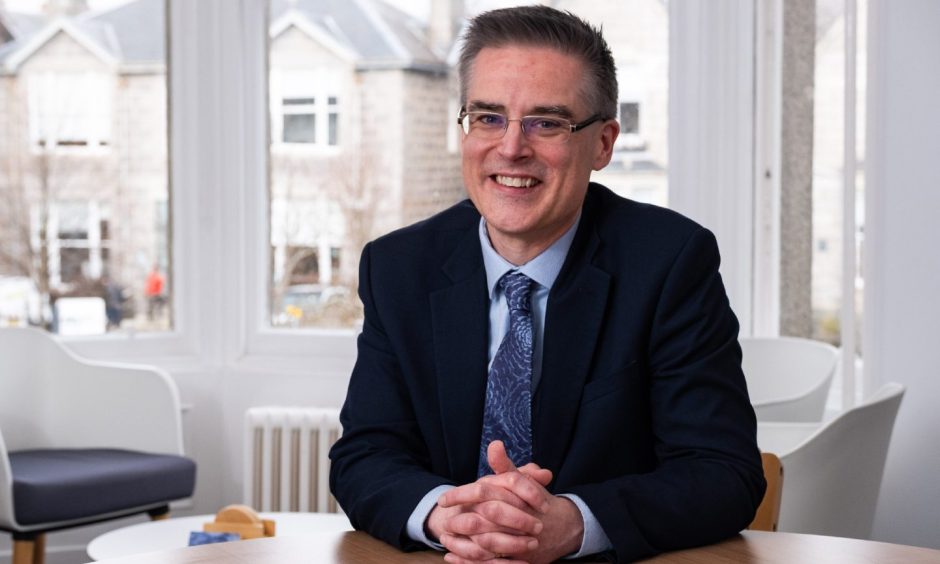
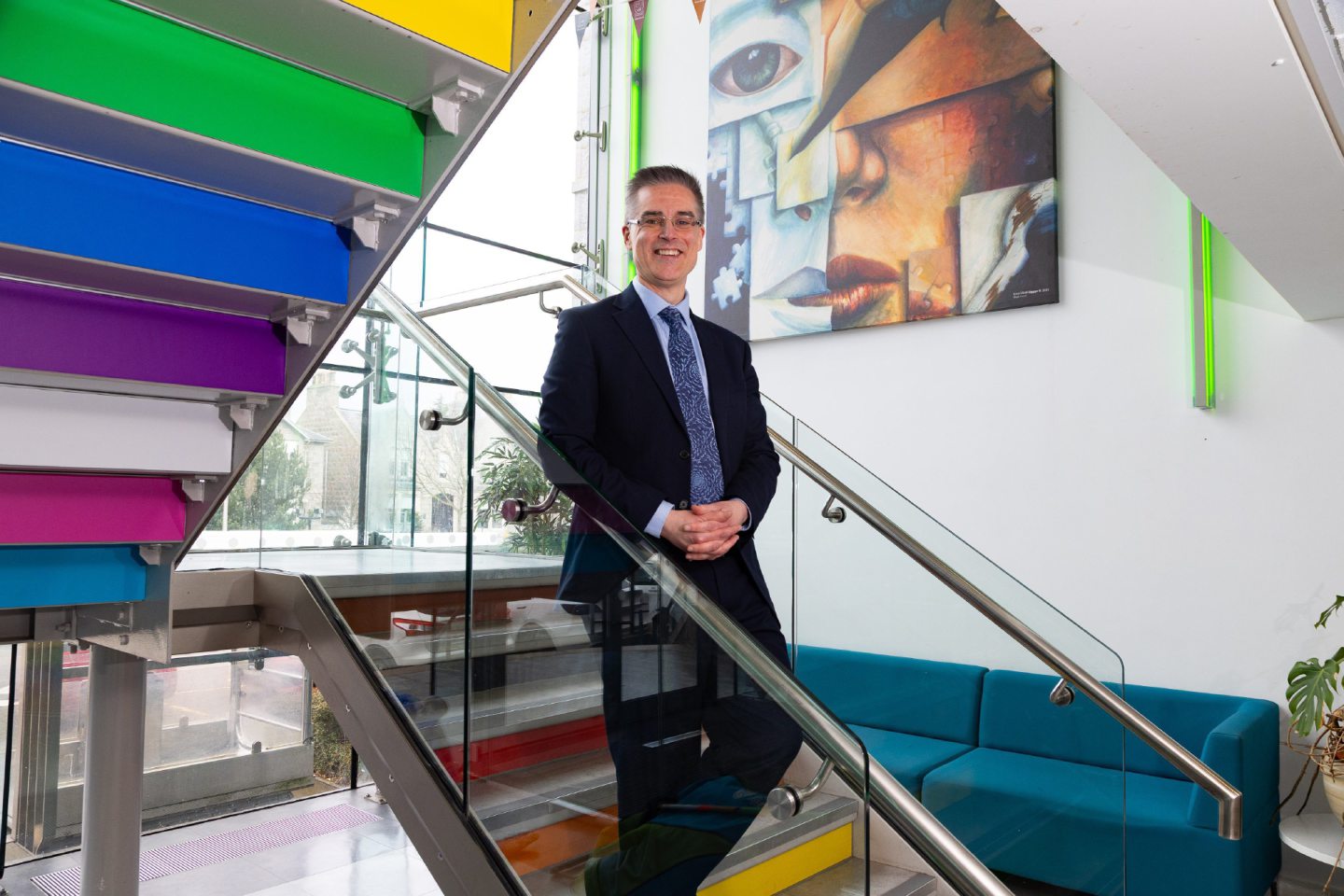
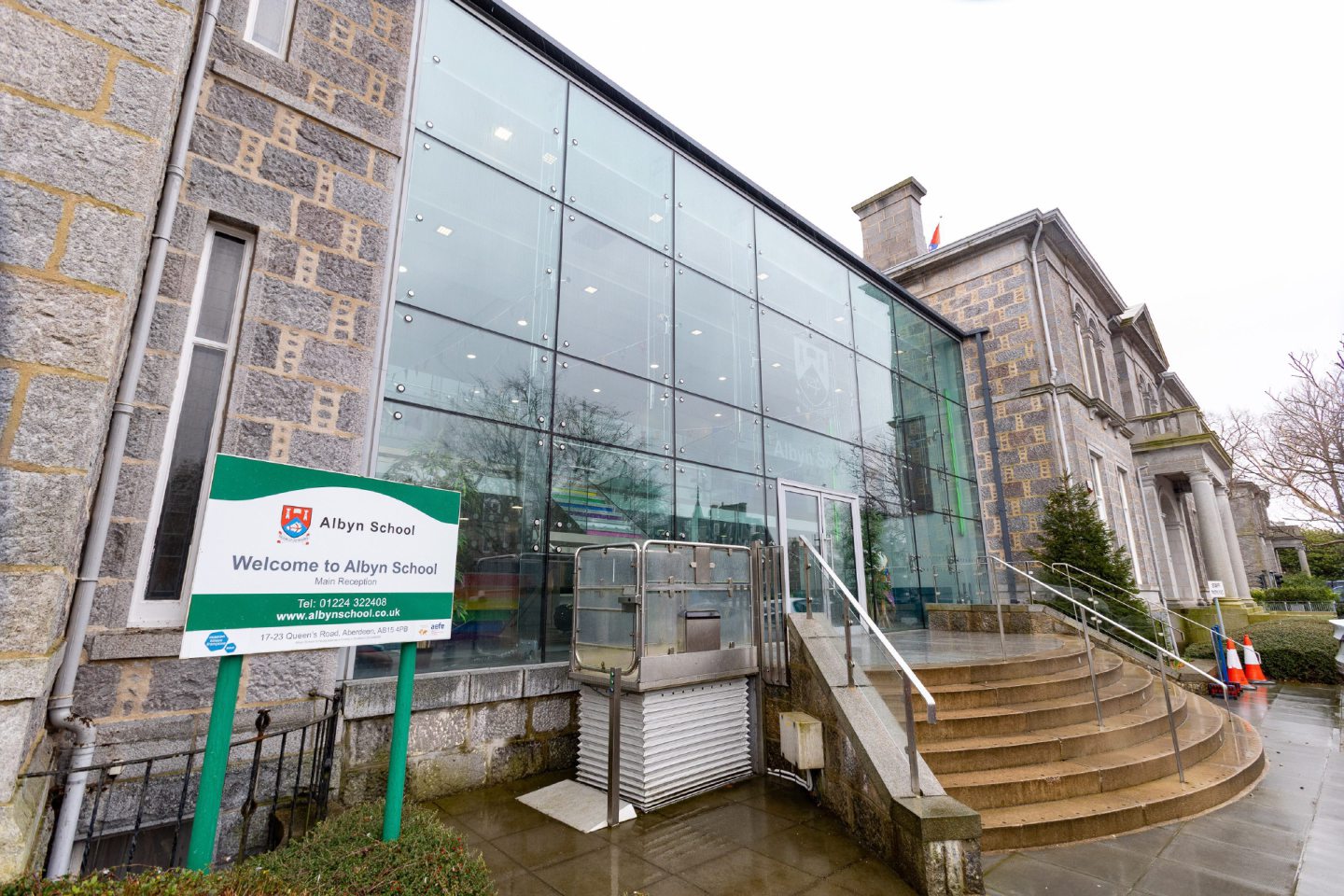
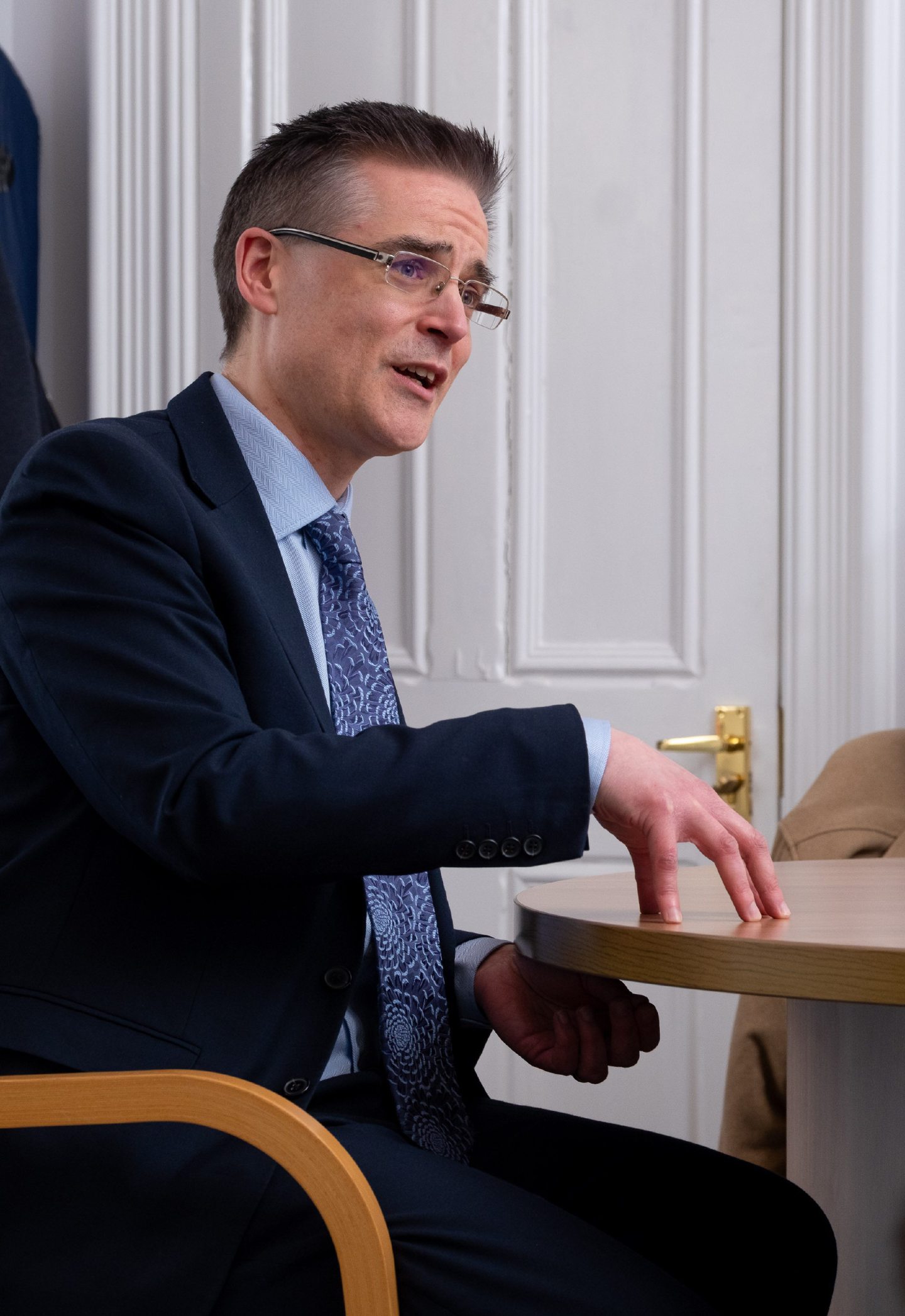
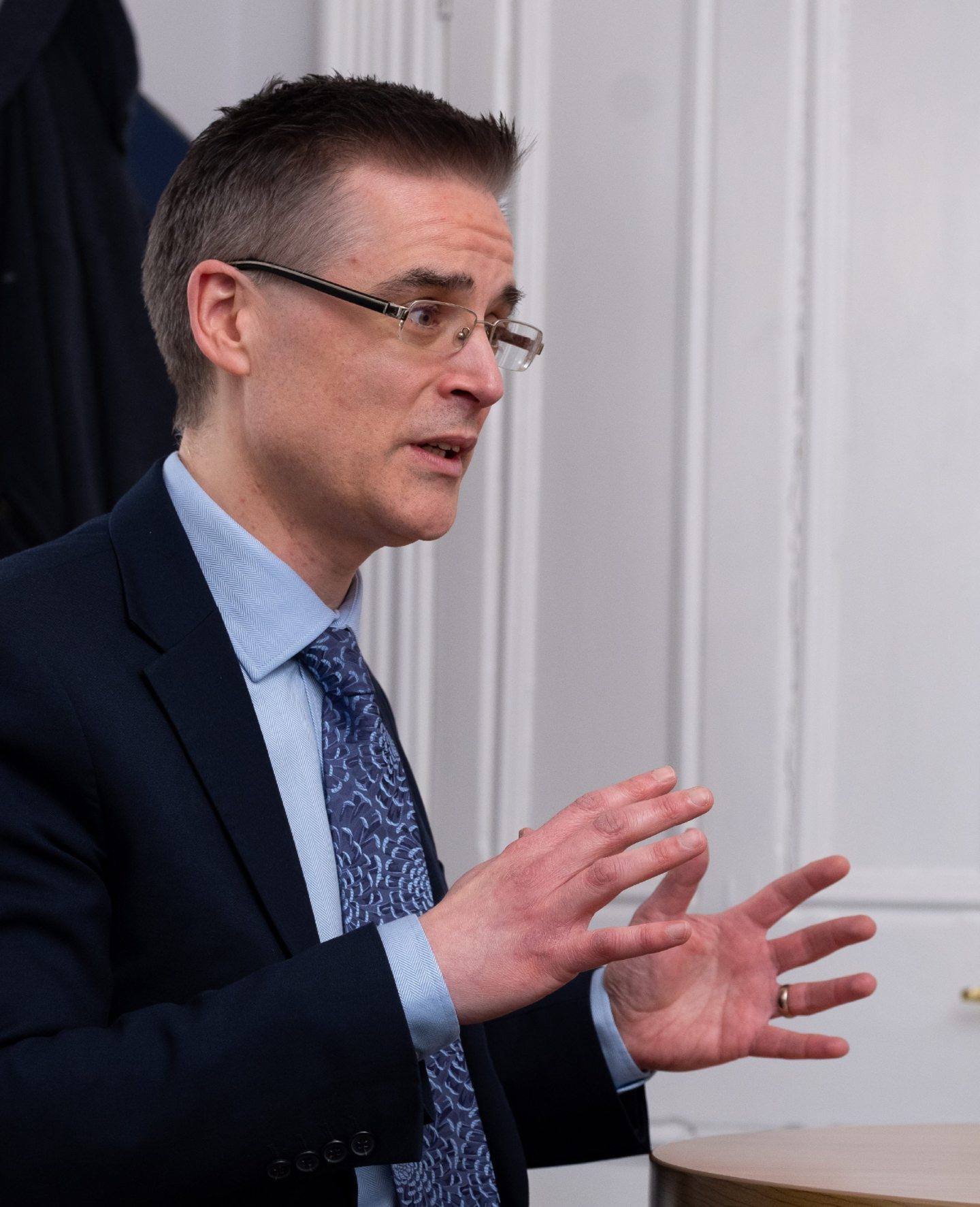
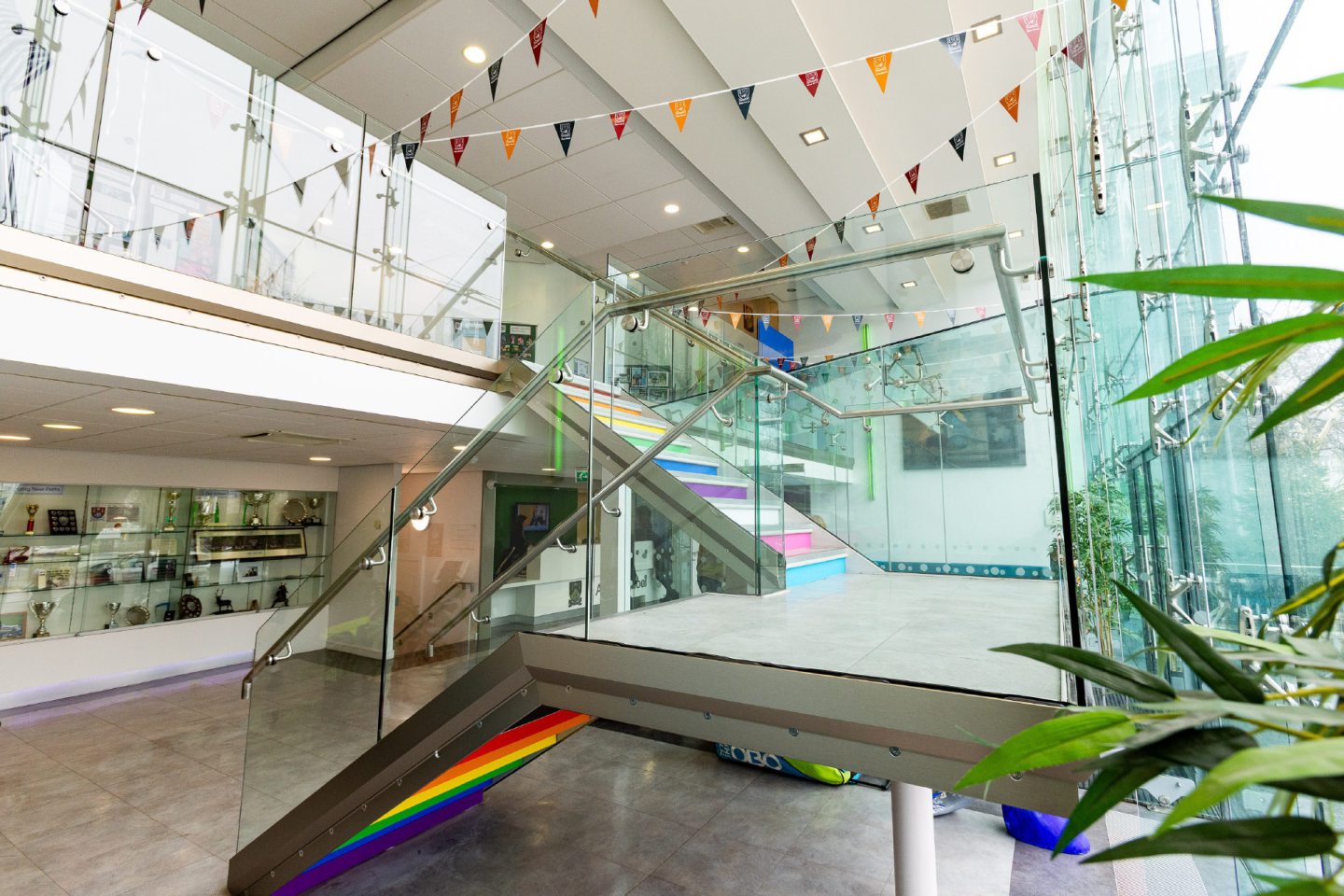
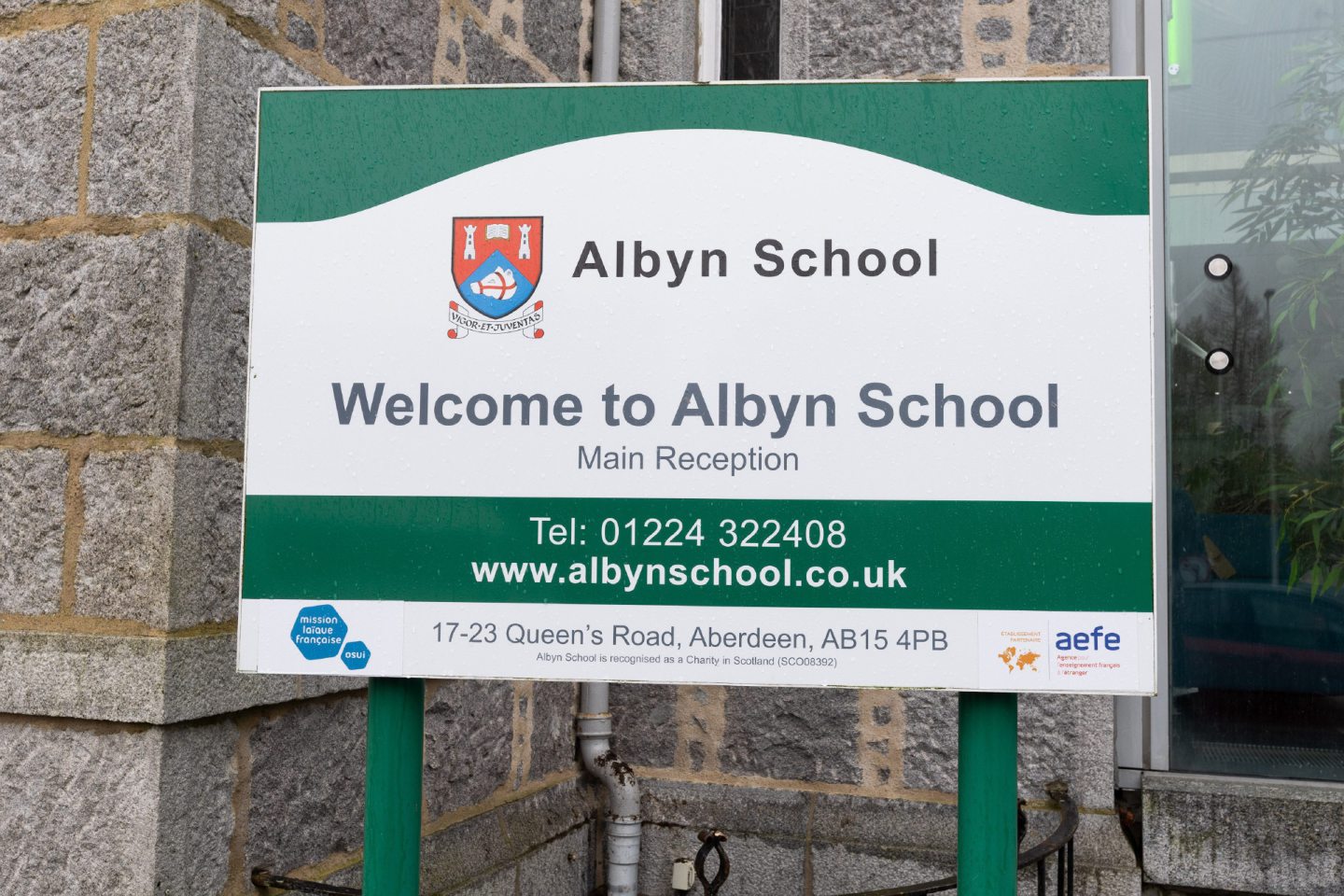
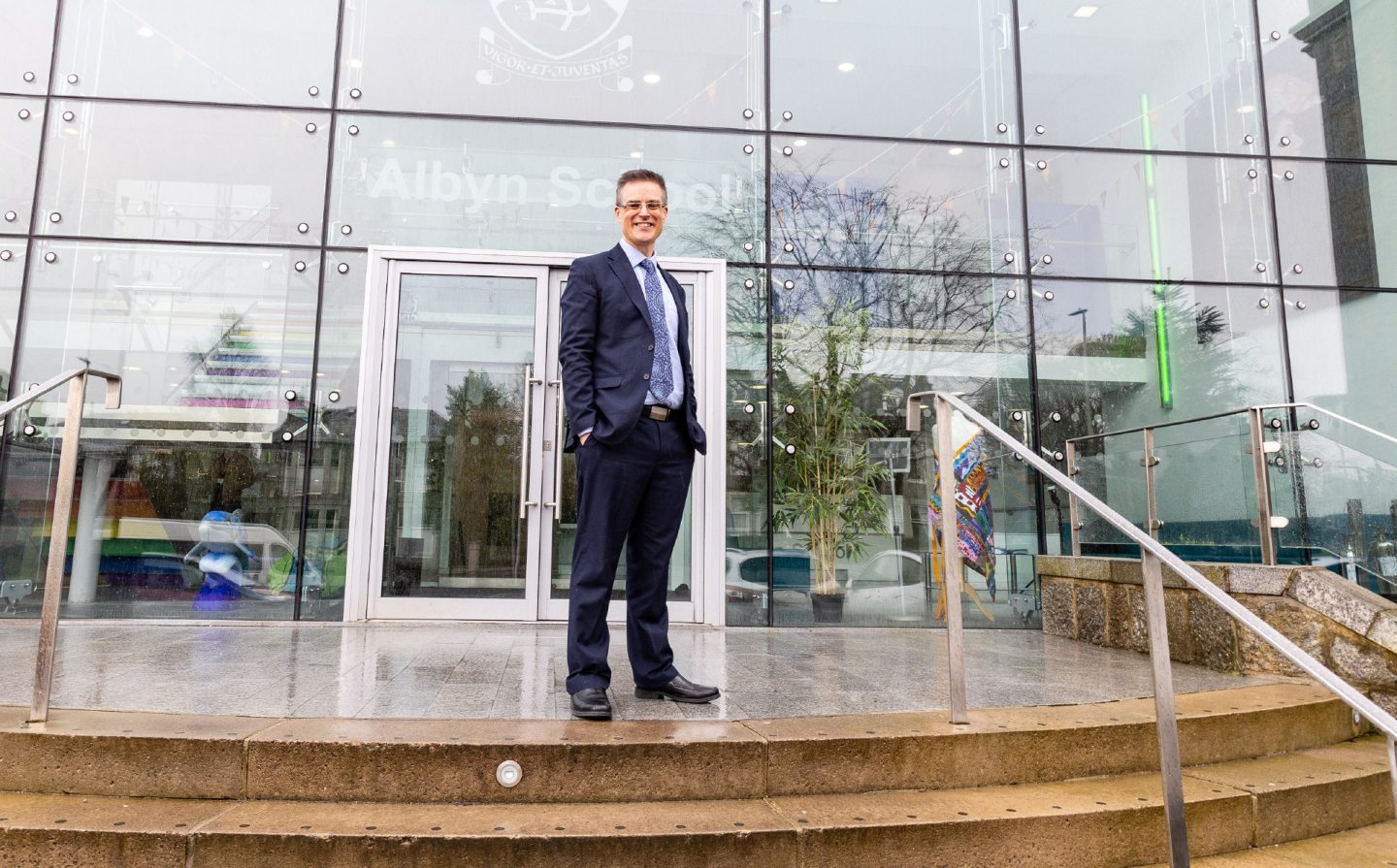
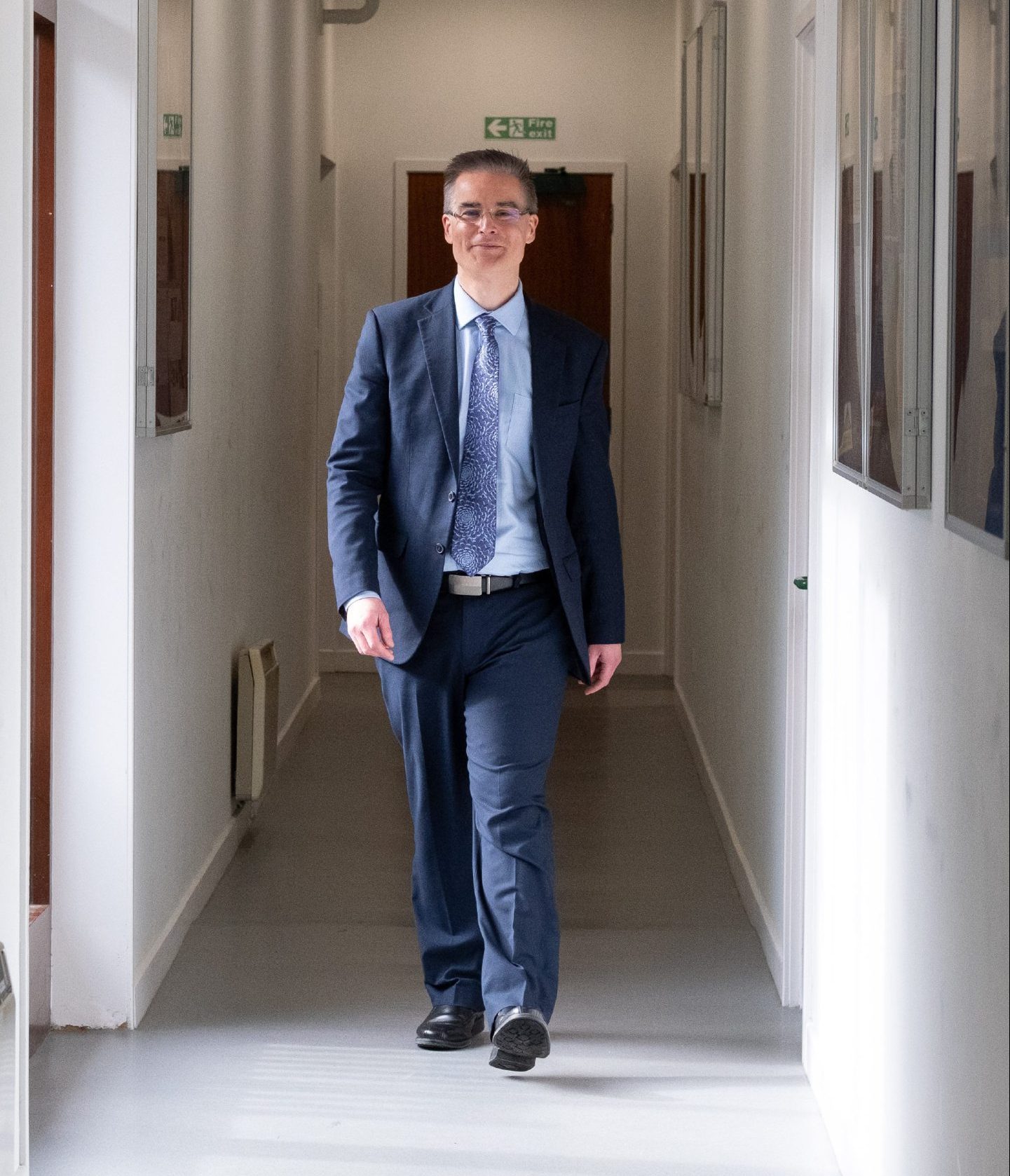
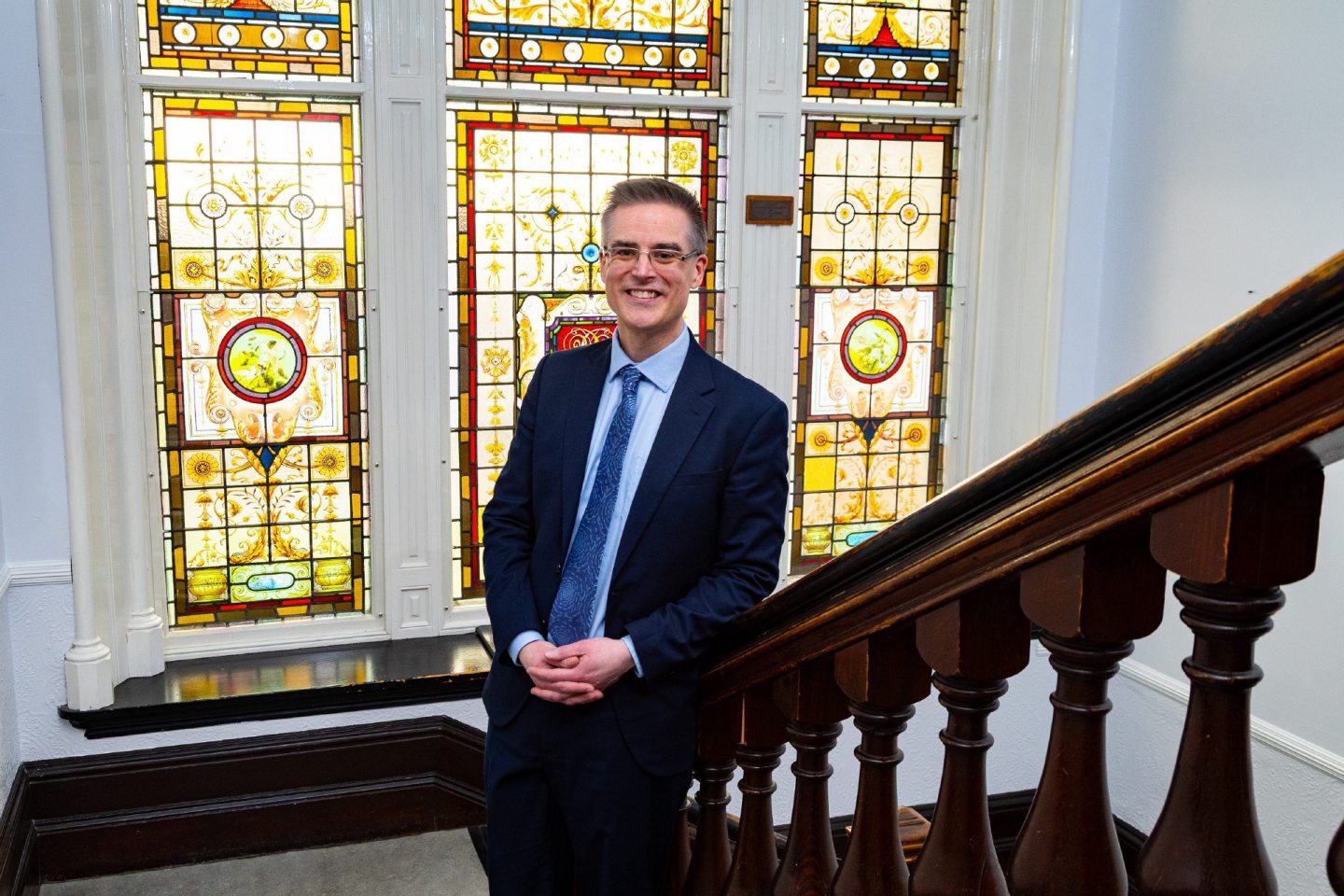
Conversation